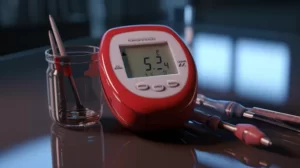When the temperature soars, so do the risks to your health. If you suffer from any health conditions relating to kidney function, blood electrolytes, sepsis (blood infection), or a urinary tract infection, it’s essential to be aware of how the heat can have a serious impact on your well-being. A study at the Harvard School of Public Health has shown that these health problems are not only exacerbated by hot weather, but the risk of hospitalization increases significantly during a heatwave.
Longer heat waves create more serious health problems
A prolonged period of high temperatures amplifies the health risks associated with these conditions. The study found that the greatest risk of a health crisis occurs on the hottest day, but your risk of illness remains high for five days after a heatwave peaks. The best course of action is to stay in air-conditioned environments if you have health concerns during the hotter months.
Francesca Dominici, a researcher and professor of biostatistics at Harvard, explains that they investigated all possible causes of hospital admission during heatwaves in order to fully understand the effects of heat on multiple organ systems. This comprehensive approach allowed them to gain a broader view of the health risks associated with high temperatures.
Increased risk for older individuals
For older people, heat stroke presents the most significant warm weather danger. The probability of a senior citizen being hospitalized for heat stroke during a prolonged heat wave rises by two-and-a-half times. However, several days of high heat can also lead to a range of other health complications.
Electrolyte and fluid imbalances
A major concern during hot weather is maintaining the appropriate balance of fluids and electrolytes in the body. The risk of electrolyte and fluid problems increases by 18 percent during high temperatures. Dehydration can occur when the body loses more fluids than it takes in, leading to symptoms like dizziness, headache, and fatigue.
A crucial aspect of preventing dehydration is ensuring an adequate intake of water. You can find more information on proper hydration here.
Kidney failure
The risk of kidney failure climbs by 14 percent when the weather is hot. Kidney failure can result from dehydration, as mentioned earlier, but other factors like a drop in blood pressure or a sudden obstruction in the urinary tract can also contribute to this dangerous condition. People with existing kidney problems should be especially cautious during a heatwave and ensure they drink plenty of water.
Sepsis
During high temperatures, the risk of sepsis, a potentially life-threatening condition caused by a response to infections, increases by 6 percent. Sepsis occurs when chemicals released by the immune system to fight infections cause widespread inflammation, leading to difficulties in blood flow and even organ failure. Those with weakened immune systems, such as the elderly and those with chronic diseases, are at a higher risk of developing sepsis.
Urinary tract infections
When the temperature rises, so does your likelihood of experiencing a urinary tract infection (UTI). The chance of a UTI increases by 10 percent as the mercury climbs. Bacteria can grow more easily in warm and moist environments, leading to a higher risk of infection. Drinking plenty of fluids can help flush out potentially harmful bacteria, reducing the risk of infection.
Protecting yourself during a heatwave
Understanding how high temperatures can exacerbate existing health problems is the first step toward taking proper care during a heatwave. To protect yourself and your loved ones, follow these tips:
- Stay in an air-conditioned environment or find a public space with air conditioning if your home doesn’t have it.
- Individuals with chronic health conditions should consult their healthcare providers for personalized advice on managing their conditions during extreme temperatures.
- Stay well-hydrated by drinking water regularly, even if you don’t feel thirsty.
- Limit outdoor activity, especially during the hottest part of the day, and rest as needed to prevent overheating.
By staying informed and taking necessary precautions, you can minimize the potentially harmful effects of hot weather on your health.



